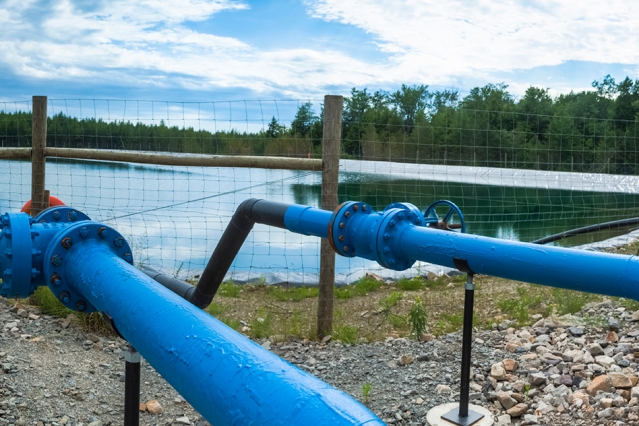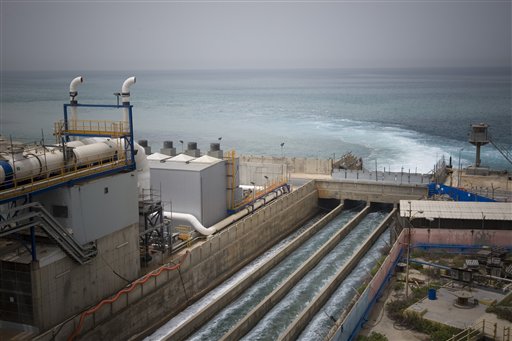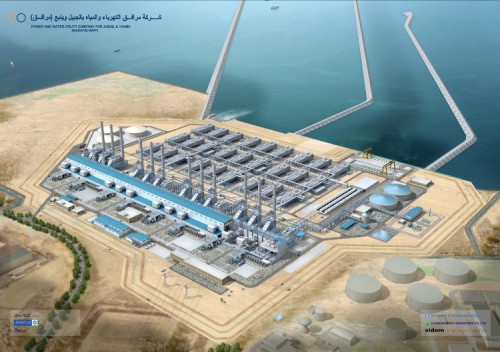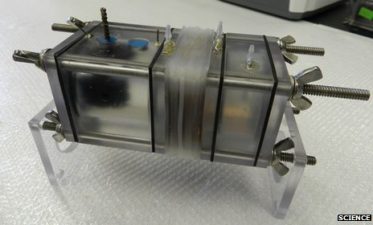Water, water everywhere but not a drop to drink!
Desalinating sea water is a costly and energy consuming way of providing fresh water in many parts of world. Though methods such as Graphene-Nanotechnology makes desalination more efficient, the end result is still problematic due to clogging of separation filters.
Returning heavily saline brine residue back to the sea makes seawater even more saline.
Rich countries and states like California, Saudi Arabia, Qatar and even Israel don’t care about cost of desalination to the national energy bill or to greenhouse gas emissions. We have said before and we will say again, desalination is not efficient and should only be used in a last-case scenario.
New research promises a more energy way to desalinate?
A much more efficient way of separating salt from sea or brackish water by literally shocking the salt from the water is being developed by a research team at the Massachusetts Institute of Technology (MIT). Invented by an MIT research team, the system uses an electrically driven shockwave within a stream of flowing water that literally pushes salty water to one side of the flow and fresh water to the other.
This allows easy separation of the two streams without needing a filtration membrane. The team leader, Professor Martin Bazant, a professor of chemical engineering and mathematics, says that the electrolysis process is a “fundamentally new and different separation system that forms a membrane-less separation of ions and particles.”
The new electrical shocking system works without using a traditional desalination system of reverse osmosis or conventional electrodialysis, “This process looks similar to electrodialysis, but it’s fundamentally different,” says Bazant.
Besides the high costs involved, one of the biggest problems of conventional desalination is the clogging or fouling — a buildup of filtered material; or to degradation due to water pressure.
This often occurs with conventional membrane-based desalination, including conventional electrodialysis: “With our system, the charged salt particles, or ions, “just move to one side,” says Bazant.
One of the more promising uses of the electrical shocking system is removing salt and other impurities from brackish water; including cleaning of large amounts of wastewater generated by hydraulic fracturing, or fracking.
Since the electro shocking process does not require the large infrastructure needed by conventional desalination, it can be used to clean saline waste water extracted by oil and gas wells: “The electric fields created by this process are pretty high, so we may be able to kill the bacteria in the water,” says Sven Schlumpberger, a graduate student also working on the project.
The electro shocking process being worked on by Professor Bazant and his colleagues is still in the developmental process; so it may be a while until it is actually put into use on a commercial scale. As a viable alternative to conventional desalination methods, it does appear to be promising.
What to do with the salt that “moves off to one side” willstill be an issue that will have to be dealt with, however.
Dive into our resources on desalination:
Graphene nanotechnology makes desalination 100 times more efficient
Cyprus gets new desalination plant with Mekorot Israel’s know-how
Going Green ends with Water from the Sea
Photo of fracking water pool, by MIT News:






Interesting concept. could you please help me to complete one project. its about desalination process n salt manufacturing and the process causes to the environment
Thats an interesting concept, and should work alright on the small scale. the “shocking” refers only to the “shockwave”, not to the voltage required. Aquarious microbes need very little potential to kill.